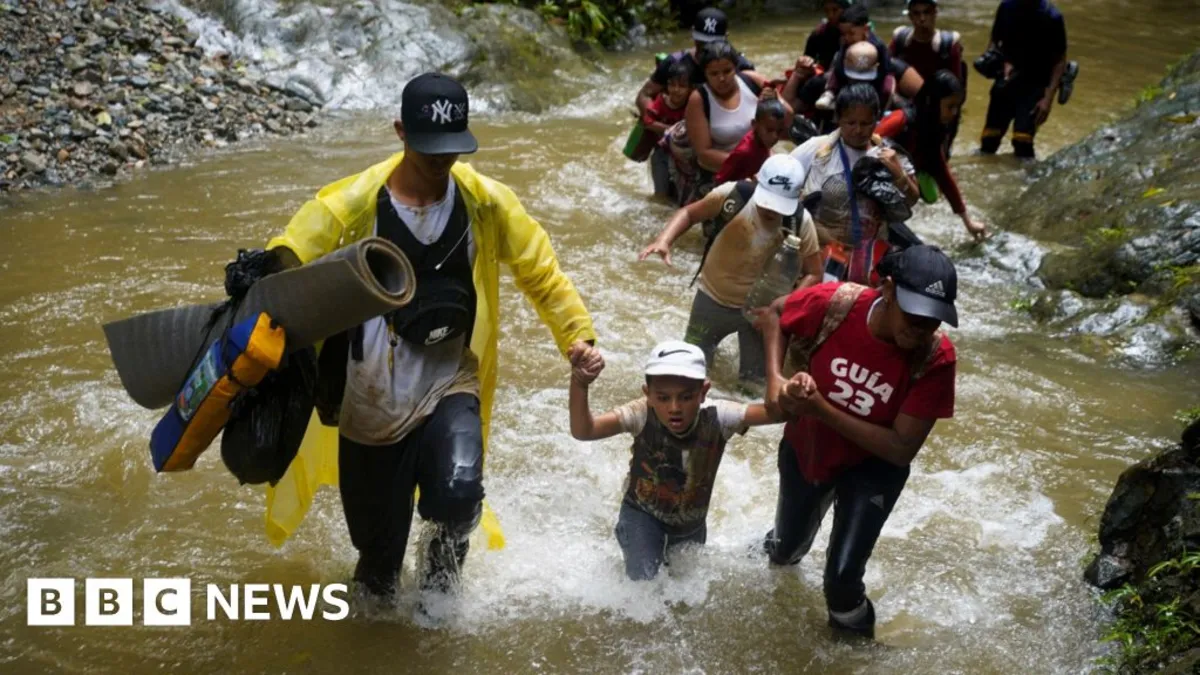
The recent ruling by a US judge has significant implications for Venezuelan and Haitian migrants living in the United States. District Judge Edward Chen declared that the Trump administration's efforts to strip legal protections from these migrants are unlawful. This decision sets aside the Department of Homeland Security's (DHS) attempt to terminate Temporary Protected Status (TPS) for individuals from nations facing dangerous conditions that make returning home unsafe.
As a result of this ruling, approximately 600,000 Venezuelans and 500,000 Haitians will be able to continue living and working legally in the US. This decision comes at a crucial time, as many of these individuals have established their lives in America, contributing to various sectors of the economy. The DHS has announced its intention to appeal the ruling, which may prolong uncertainty for these communities.
The TPS program was created by Congress in 1990 to provide temporary legal protections for migrants from countries undergoing war, natural disasters, or other extraordinary conditions. In a comprehensive 69-page decision, Judge Chen criticized the actions of DHS Secretary Kristi Noem, describing the revocation of protected status as unprecedented in both its execution and speed, and as a violation of established law.
Judge Chen emphasized that the dangerous conditions in Venezuela and Haiti are so severe that even the US State Department advises against travel to these nations. This legal context underscores the necessity of maintaining TPS for those affected, as returning could pose significant risks to their safety.
In response to the judge's ruling, a DHS spokesperson conveyed their belief that the TPS program has been abused, exploited, and politicized, describing it as a de facto amnesty program. The spokesperson further asserted that "unelected activist judges cannot stop the will of the American people for a safe and secure homeland," reflecting the administration's stance on immigration policy.
Under former President Joe Biden, the TPS program was extended to include not just Venezuela and Haiti, but also Afghanistan, Cameroon, and Ukraine. Conversely, President Donald Trump sought to reverse these extensions upon taking office earlier this year. In March, the Trump administration announced plans to revoke TPS for over half a million migrants from Cuba, Haiti, Nicaragua, and Venezuela, warning them to leave the country before their legal protections expired on April 24.
The National TPS Alliance, alongside Venezuelan TPS holders, filed a lawsuit against the Trump administration and the DHS, arguing that Noem lacked the authority to unilaterally roll back the protections granted by the previous administration. In May, the Supreme Court allowed the Trump administration to continue its efforts to end TPS for Venezuelans, although Judge Chen clarified that the high court's decision addressed only preliminary relief and did not prevent him from issuing new orders.
This ruling is a pivotal moment for migrants from Venezuela and Haiti, reaffirming their legal status and protections in the United States. As the DHS prepares to appeal, the future of TPS and the lives of hundreds of thousands of migrants remain in a state of flux, highlighting the ongoing complexities of immigration policy in America.